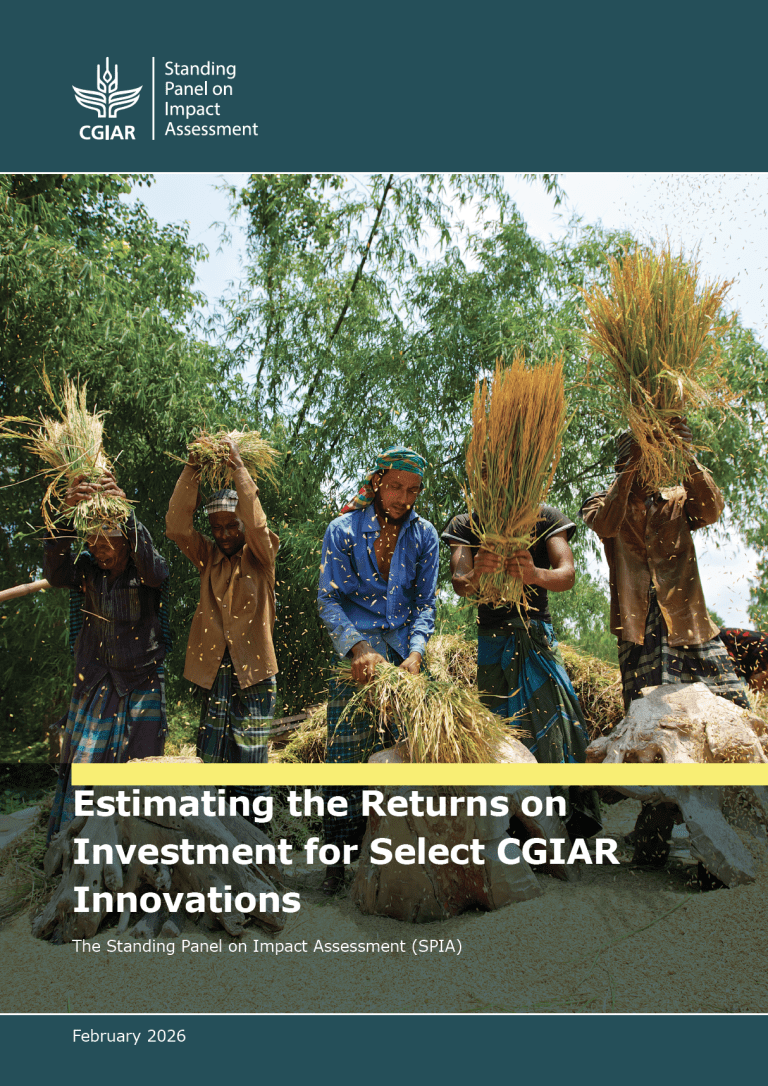While the approval of the SPIA 2019-2024 workplan by System Council 7 implied a strong recognition of the importance of measuring outcomes and impacts of CGIAR, the closure of this 6-year workplan in 2024 is bringing a variety of insights and relevant learning that aims to inform various decision-making processes among different CGIAR stakeholders. SPIA is in the process of disseminating the rigorous evidence generated through country-level studies measuring the reach of CGIAR-related innovations, and rigorous impact assessment studies generating causal estimates of CGIAR impact. Furthermore, SPIA aims to support CGIAR stakeholders in reflecting on the rigorous evidence coming out from its portfolio and encourage the use of this evidence for decision-making.
Although the current SPIA workplan has also delivered on supporting CGIAR’s strong commitment to embed a culture of impact assessment into the System, the evidence shared below comes out of the careful measurement of reach of SPIA innovations (component 3 of the 2019-2024 workplan) and rigorous causal impact studies (component 2 of the 2019-2024 workplan) that are the foundation of the SPIA approach to impact assessment for CGIAR.
With the closing of this workplan, SPIA has gathered key insights from the evidence in 5 briefing documents. These documents integrate learnings from SPIA impact and reach evidence with external impact evidence and are available below for download:
- Climate Change Adaptation and Mitigation
- Environmental Externalities of Agricultural Intensification
- Targeting of Agricultural Technologies
- CGIAR Research on Mechanization
- SPIA Country-Level Studies
Note that evidence from SPIA country studies is still preliminary and subject to change. Final numbers from these studies will be made available in full-length country study reports to be published in December 2024.
On 10 December 2024, SPIA is organizing a side event to the 21st CGIAR System Council. This event will offer deep-dives into some of the evidence presented in the briefing notes and open up for discussion with System Council members.



